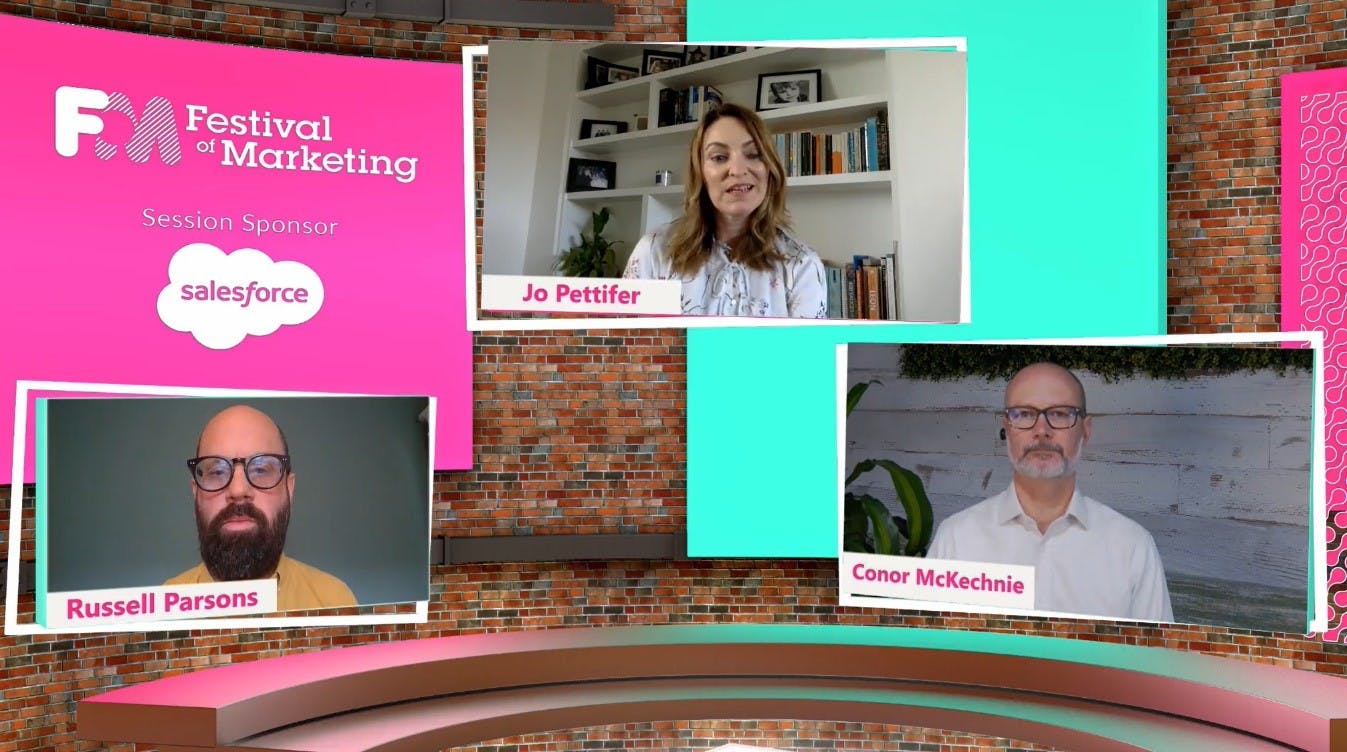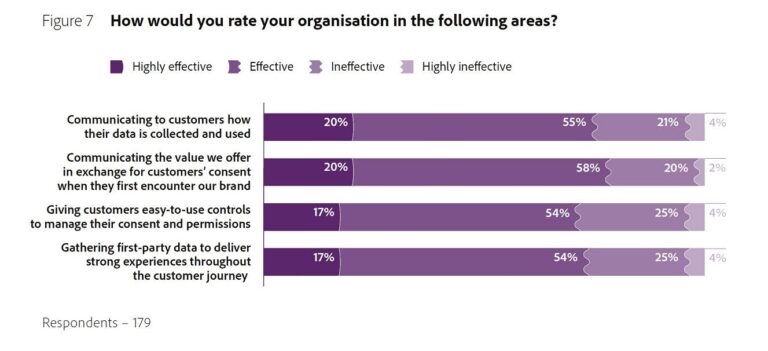
Cytiva’s McKechnie deduces that, due to the very nature of technology, the good marketer of today is different to the marketer of yesterday when it comes to the additional skills and capabilities required of them.
How Marketers Learn
Pettifer agrees, stressing there is a need for “ruthless prioritisation” from organisations, where the skills required have a “strong sense of alignment with the business, and what the business outcomes are.”
Are we asking too much of marketers?
“It’s not just helping people learn, it’s learning myself… I really enjoy being wrong. I like being wrong. I go out to find marketers and people in the business to challenge my assumptions about things and demonstrate that I may have the wrong picture of the world… If I’m shown to be wrong on a Monday, on Tuesday I’m a little bit less wrong.”
So, how can businesses decide what to prioritise when it comes to upskilling and hiring?
They discussed how to identify and audit gaps in a team’s skillset and measure them against business objectives, and the ways in which organisations can foster a culture of continuous learning.
“As the business gets used to it and it becomes part of what the business does, you don’t necessarily need to have a head of SEM, or a head of search, or a head of social.”
“You see people going and chasing after the latest shiny thing,” McKechnie says, “… We need to be careful about that.”
When preparing to hire, both panellists concur that recruiters should maintain focus on what is needed for their specific circumstances, rather than what is popular in the wider marketing world.
Despite a clear need for a level of upskilling within organisations, he argues there is still a place for hiring specialists in certain areas of marketing, particularly when a discipline is brand new. By recruiting a specialist early on, they are able to educate the rest of the business on how to implement the technology, or methodology, on a deep technical level to the point where it becomes embedded in standard marketing practice at that organisation.
McKechnie adds that, “People with these digital skills need to make sure they understand the fundamentals, and people who have been classically trained in marketing… need to get at least a basic understanding of what those digital skills are.”
“Some of the recent surveys and studies that we’ve done amongst marketing leaders are really showing we are very well equipped for traditional roles, but we are more deficient in those newer skills.”
Is upskilling the answer?
Meanwhile, Salesforce’s Pettifer believes that the pandemic may have exacerbated expectations for new hires. As organisations have been turning to marketing teams to lead rapid digital transformation in the last 18 months, this has caused many brands to become more aware of where skillsets might fall short.
“What is [it] going to look like in the future? We’re going to be in this hybrid world, fortunately very soon… so that brings a new dimension of skills that we need to look at.”
Parsons asks if recruiters are getting carried away with what they expect from the marketers of today and tomorrow.
Cytiva’s VP Marketing, McKechnie believes so, at least in part. He explains that implementing new technology is purposeless if the skills and understanding of employees is not developed to match this capability. Meanwhile, the (often greater) challenge can be in fostering new, positive behaviours around changing the way an organisation approaches marketing.
Earlier this month, Festival of Marketing’s Fast Forward event saw Jo Pettifer, VP Marketing UK and Ireland at Salesforce, and Conor McKechnie, VP Marketing at Cytiva speak to Marketing Week Editor Russell Parsons about the growing digital skills gap in marketing.
Specialisms are here to stay
Pettifer advises running an audit to assess the range of tools, skills and channels at your organisation’s disposal, benchmark which of these are working to their full potential, and identify what insight or capability is missing that might hinder the accomplishment of business goals. Key to ensuring you get the most out of the audit, she continues, is not just looking at the here and now.
With digital transformation greatly accelerating in light of the pandemic, this has caused some pressure to keep up the same momentum – but not all marketing teams are equipped to deal with such intensive change long-term. Is upskilling and retraining existing employees the answer to acquiring the skills we need to close the gap?
Auditing your skills gap and fostering learning in your organisation
For McKechnie, fostering a learning culture depends not just on a clear learning programme, but on maintaining a positive attitude to personal development at the top of the organisation that can then feed down to individuals.
McKechnie adds that it’s important to get your team involved in this overview in order to energise them for the future of marketing. He explains how, when he joined Cytiva, he helped his colleagues “paint a vision of what they felt marketing should be contributing to the business” before challenging them on whether that vision was ambitious enough. Once a vision is set out, he advises breaking out all the marketing disciplines that are used in the organisation and analysing them in a “very granular way” before taking “concrete action” based on your findings.
“Digital transformations are at risk of being held back because of [a] lack of skills,” says Pettifer, “… There are 192,000 jobs advertised today in the UK and Ireland which [require] some sort of digital skill.
On a more individual level, Salesforce VP Marketing Pettifer recommends being ‘demanding’ of your manager when developing your own improved set of digital skills for the future. Being a manager herself, she says, her teams rate her performance on this.
“… By 2025, 60% of our roles will have changed [and will] require the skills [that] enable us to deliver this digital transformation – we’re not going to be able to hire our way out of this.”
As the marketing mix becomes ever larger and more technical, there has been a growing demand for a variety of data-driven and digital skills in marketing, many of which can be too technical to fulfill. This has created a digital skills gap within marketing, and as automation and digitisation in the sector grows, there are fears that this gap could widen even further.
“We have to help our individuals in this new way of working that we have now. What we’re going to see in the future is [being able] to access new ways of learning as well as new ways of working. So anytime, anywhere… make that available to [employees].”
“But in their core characteristics and in their foundational understanding of marketing, I think they’re going to be very, very similar… That underlying foundational principle of what good marketing looks like, what it delivers… that is something that’s not going to change anytime soon,” he explains.
“If you don’t do that at the same time, and give people a clear vision of what it is that you’re going to be able to achieve with this hot new Ferrari martech stack that you’ve got in the garage, it’s just going to sit in the garage and people are going to come down everyday after breakfast and get on their bicycles.”






